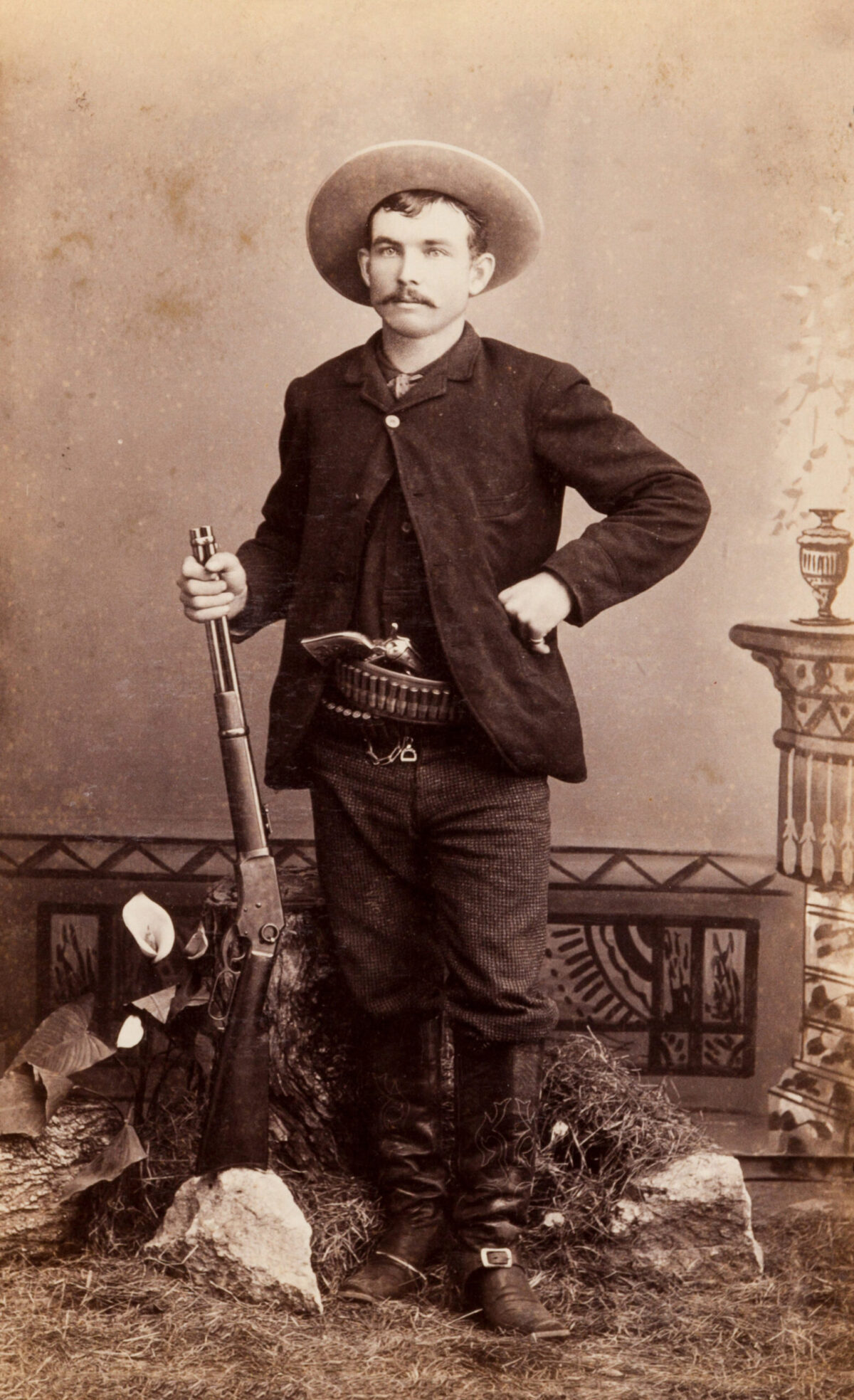Though diminutive Texas Ranger Ira Aten (1862–1953) looks more Boy Ranger in this circa-1883 cabinet card, he was a big noise in his day. The second of four sons born to a circuit-riding Methodist minister, Ira moved with his family from Illinois to Round Rock, Texas, in 1876. The newly arrived railroad brought prosperity to town, inevitably drawing outlaws, and on July 20, 1878, Rangers mortally wounded Sam Bass as he and his gang cased the local bank. Among those who witnessed the shootout was Aten, who was inspired to join the force.
In the spring of 1883 the 20-year-old enlisted in Company D of the Frontier Battalion He served six years with the Rangers, rising to sergeant. Aten’s most storied exploit came in 1888 amid a fence-cutting war in Navarro County, when drought prompted stockmen to fence off coveted land and water, and vigilantes responded by repeatedly cutting the barbed wire. Tasked with stopping the fence cutters, Aten placed booby-trapped dynamite charges at certain disputed sections. When Texas’ adjutant general ordered the explosives removed, Aten did so by blowing them up, ensuring a rumor spread that other charges remained in place. Little surprise, the fence cutting stopped.
Aten later served as sheriff of Fort Bend and Castro counties. He’s also linked to the XIT Ranch through his 1892 marriage to Imogen Boyce, a cousin to that famed spread’s general manager. Three years later Aten hired on as foreman of the XIT’s central Escarbada division. To protect its steers, he raised a force of 20 hands, including former Rangers, all armed with Winchesters, though in this earlier portrait Aten is holding a Whitney-Burgess-Morse carbine, a precursor to Colt’s short-lived venture into rifle making.
In 1904, Aten moved his family to California, where he died at age 90 of pneumonia on Aug. 5, 1953. His exploits earned this last of the old guard posthumous induction into the Texas Ranger Hall of Fame in Waco.





